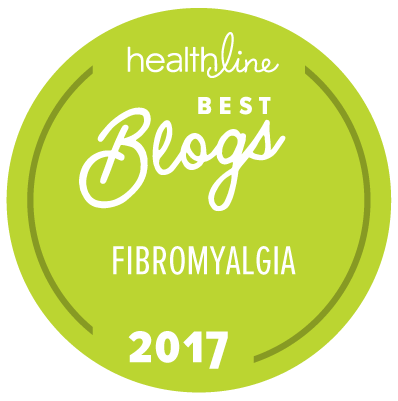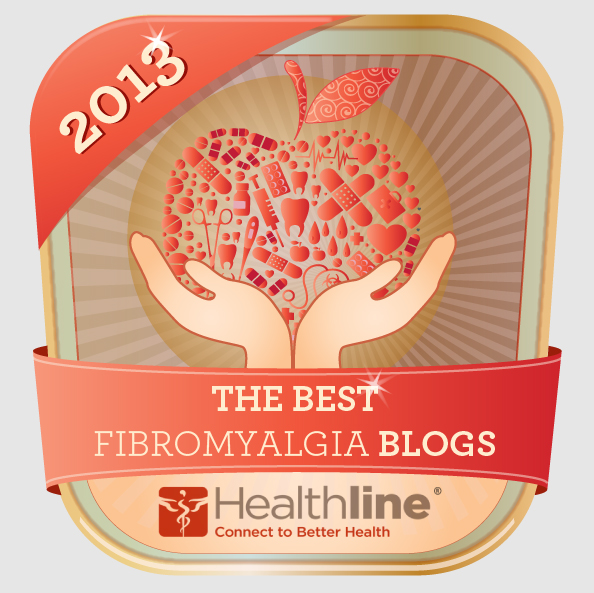Showing posts with label low dose naltrexone. Show all posts
Showing posts with label low dose naltrexone. Show all posts
Friday, January 30, 2015
UPDATE ON LOW DOSE NALTREXONE
New study.
Old pills.
Can we tell the difference.
I wrote about low dose Naltrexone for the use of pain management in Fibromyalgia back in 2010. Stanford University was just preparing for a study on them. I didn't keep track of the study but, I guess, it's winding up and they are publishing results.
Low Dose Naltrexone is an anti-addiction drug but in low doses it acts differently. It has been prescribed off label for Fibromyalgia for the past few years. It is FDA approved, in low doses, for helping those with autoimmune diseases and central nervous system disorders.
Bingo.
On the home page of Low Dose Naltrexone is is suggested that people with Chronic Fatigue and Fibromyalgia are helped suggesting that "these entities probably have an important autoimmune dynamic as well." On the page where it outlines the diseases it helps, under other autoimmune diseases, Fibromyalgia and Chronic Fatigue are listed as well.
Is there hope on the horizon??
Yes, it is most definitely a central nervous system disorder and I also believe it is an autoimmune disorder of that central nervous system. Anyone who was prescribed Low Dose Naltrexone and had an autoimmune disorder, none failed to respond and in many patients there was a MARKED remission in signs and symptoms.
Are there side effects?
Contrary to what I found before, the home page says there are virtually no side effects but there are cautionary warnings. For example, for me, I'd have to start out on the lowest possible dose because I have Hashimoto's Thyroiditis. If I took a large dose there is such a marked improvement that I could swing over to hyperthyroidism very quickly, so I have to be careful.
Plus, if you are already dependent on opioid for pain management, you'd have to be off those for a few weeks before starting the Naltrexone. That, in itself, poses a problem. If you're on opioid for pain being off them for a few weeks is just more than deciding to stop them. Stopping pain medication suddenly can throw you're body into a real tailspin and this needs to be done under the supervision of a medical doctor. Not to mention that being off them will cause some of us to curl up in the fetal position and feel like we want to die.
There is some possibilities here but I think that we need to put it on the balance bar and weigh the benefits as opposed to the side effects. Other sites state that the list of side effects includes, dizziness, headache, nervousness, insomnia, fatigue, joint pain and excessive muscle contraction. These side effects are what I experience on a daily basis so how would I know if it helps?
The problem with a drug that promotes itself as a cure-all for every autoimmune disease is a little suspect, in my opinion. How can one drug help so many diseases that have different causes and symptoms?
Increasing immune activity doesn't always mean that it's helping the immune system.
In fact, couldn't that make it worse?
On the other hand, big pharma aren't real interested in a drug that will make them no money. Naltrexone isn't real expensive and clinical trials are initiated by the drug companies. Why do it for a drug that is already out there and no big profits?
I think it bears watching.
Whatever it is we will be caught in the crossfire.
Big Pharma can't make money, so it's no go.
Doctors don't believe it, so it's no go.
When do we get a chance to say what we want?
Sunday, March 11, 2012
LOW DOSE NALTREXONE UPDATE
New study.
Old pills.
Can we tell the difference.
I wrote about low dose Naltrexone for the use of pain management in Fibromyalgia back in 2010. Stanford University was just preparing for a study on them. I didn't keep track of the study but, I guess, it's winding up and they are publishing results.
Low Dose Naltrexone is an anti-addiction drug but in low doses it acts differently. It has been prescribed off label for Fibromyalgia for the past few years. It is FDA approved, in low doses, for helping those with autoimmune diseases and central nervous system disorders.
Bingo.
On the home page of Low Dose Naltrexone is is suggested that people with Chronic Fatigue and Fibromyalgia are helped suggesting that "these entities probably have an important autoimmune dynamic as well." On the page where it outlines the diseases it helps, under other autoimmune diseases, Fibromyalgia and Chronic Fatigue are listed as well.
Is there hope on the horizon??
Yes, it is most definitely a central nervous system disorder and I also believe it is an autoimmune disorder of that central nervous system. Anyone who was prescribed Low Dose Naltrexone and had an autoimmune disorder, none failed to respond and in many patients there was a MARKED remission in signs and symptoms.
Are there side effects?
Contrary to what I found before, the home page says there are virtually no side effects but there are cautionary warnings. For example, for me, I'd have to start out on the lowest possible dose because I have Hashimoto's Thyroiditis. If I took a large dose there is such a marked improvement that I could swing over to hyperthyroidism very quickly, so I have to be careful.
Plus, if you are already dependent on opioid for pain management, you'd have to be off those for a few weeks before starting the Naltrexone. That, in itself, poses a problem. If you're on opioid for pain being off them for a few weeks is just more than deciding to stop them. Stopping pain medication suddenly can throw you're body into a real tailspin and this needs to be done under the supervision of a medical doctor. Not to mention that being off them will cause some of us to curl up in the fetal position and feel like we want to die.
There is some possibilities here but I think that we need to put it on the balance bar and weigh the benefits as opposed to the side effects. Other sites state that the list of side effects includes, dizziness, headache, nervousness, insomnia, fatigue, joint pain and excessive muscle contraction. These side effects are what I experience on a daily basis so how would I know if it helps?
The problem with a drug that promotes itself as a cure-all for every autoimmune disease is a little suspect, in my opinion. How can one drug help so many diseases that have different causes and symptoms?
Increasing immune activity doesn't always mean that it's helping the immune system.
In fact, couldn't that make it worse?
On the other hand, big pharma aren't real interested in a drug that will make them no money. Naltrexone isn't real expensive and clinical trials are initiated by the drug companies. Why do it for a drug that is already out there and no big profits?
I think it bears watching.
Whatever it is we will be caught in the crossfire.
Big Pharma can't make money, so it's no go.
Doctors don't believe it, so it's no go.
When do we get a chance to say what we want?
Sunday, January 17, 2010
Friday, January 15, 2010
NIGHTSHADE? LOW DOSE NALTREXONE?
Low dose Naltrexone.
Would it work?
It's thought that the central nervous system is compromised in people with Fibromyalgia and Chronic Fatigue. Naltrexone is an anti-addiction drug in normal circumstances but in low doses it acts differently.
Stanford is preparing for a study of Low Dose Naltrexone as a treatment for Fibromyalgia and Chronic Fatigue. This is the first study of it's kind but this drug has been prescribed off label for the past few years.
It isn't a cure-all and not without side effects.
Some of them are:
dizziness
headache
fainting
anxiety
nervousness
insomnia
fatigue
nausea & vomiting
diarreha
joint pain
excessive muscle contraction
sore throat
Now, look at that list. I'm a little confused. If those are the side effects how would they know if it's working? A lot of those are the same symptoms that we feel with Fibromyalgia. I know, in the Stanford study, that the side effects are rare and short-lived but there are people that will be on either side of the "average." Given my tolerance of medication I'll just bet I'd be one of those people.
Are the side effects worth it?
I have a hard time with drugs. Not to say that I don't use them to stay out of pain but the opiods are solid. The relief is there and the side effects are minimal. It's the drugs that make you weigh them on the balance bar to see if the side effects outweigh the benefits.
It's like Lyrica. Given the litany of side effects that there are who in the hell would put that in their mouths? I know everyones different. I guess that is a different view of the balance scale. For me, no fricking way. I think it's the weight gain that did it for me. I have enough self esteem issues without more weight gain. I've put on 20 pounds and I'm one of those all or nothing women. If I'm not a 10 I must be a zero and I don't need Lyrica to help that issue along.
A more natural road.
Then theres the whole nightshade issue. When I first heard about it I thought it was a new kind of curtain. I didn't have a clue that there were foods classified as nightshades.
Nightshades are a family of foods that include tomato, potato, eggplant, tomatillos and peppers as well as spices like paprika, cayenne pepper and tabasco sauce.
Nightshades contain a toxin that in normal conditions bodies process very well but given the compromised system in Fibromyalgia it is thought that by removing these from your diet it will help with your pain. These vegetables contain high levels of alkaloids that remove calcium from the bones.
Now I haven't seen ANY studies on this so I'm not sure if it's just a reach but I do know that certain foods affect people in different ways. I can't be sure that it's not a food allergy.
Part of me wants a dietary fix and the other part doesn't think that a nutritional avenue is the only way to go.
What to do?
I'd love comments to hear what people feel about these two treatments.
Subscribe to:
Posts (Atom)
















